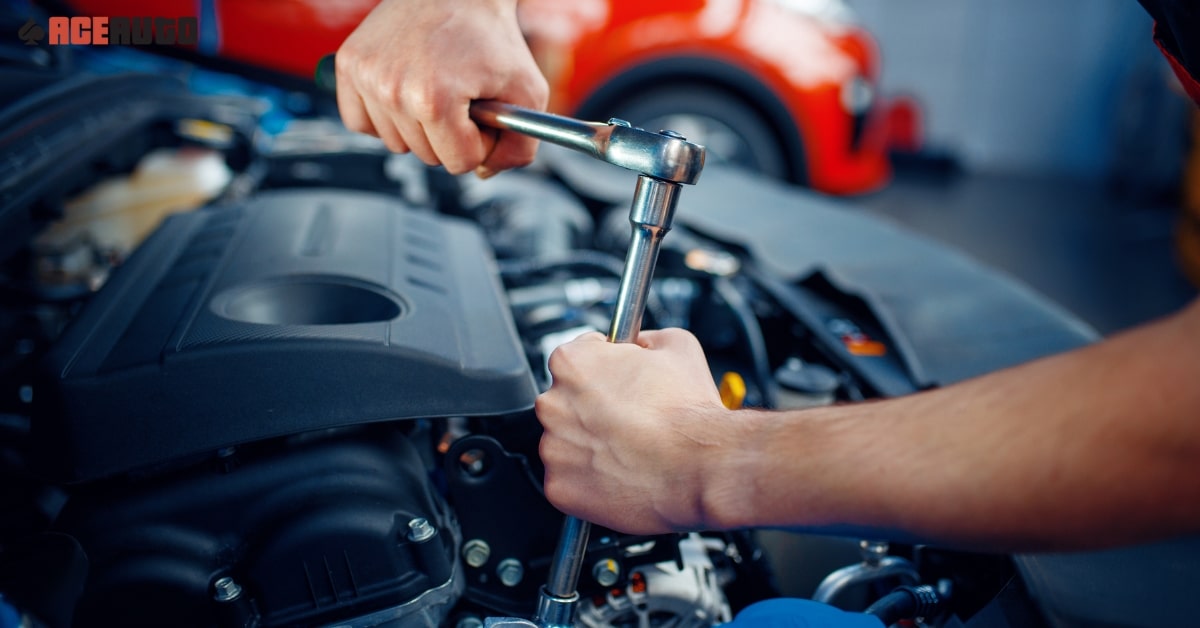All Categories
Featured
Your vehicle's engine is a complicated system that relies upon numerous interconnected components to work correctly. Among the most critical elements that makes certain everything runs smoothly is the timing belt. Though often neglected, the timing belt plays a vital role in maintaining your engine integrated and operating at peak efficiency. Overlooking its maintenance or substitute can lead to major, expensive damage to your engine. In this write-up, we'll discover the importance of timing belt substitute and why it's crucial to your engine's longevity.
What Is a Timing Belt and Just How Does It Function? The timing belt is a rubber or enhanced composite belt that connects the crankshaft to the camshaft in your engine. These 2 components have to operate in sync for the engine's valves to close and open at the correct times throughout the burning cycle. The timing belt regulates this synchronization, making certain that the shutoffs and pistons don't collide.
![]()
As your engine runs, the timing belt continually moves to maintain these parts lined up. Gradually, the belt undergoes damage from engine, warmth, and rubbing resonances. If it breaks or becomes loosened, the crankshaft and camshaft will certainly no more be integrated, triggering engine misfires, loss of power, or, in the most awful situation, serious engine damages.
Why Timing Belt Replacement Is Crucial. Protects Against Serious Engine Damage: If the timing belt breaks while the engine is running, the pistons can ram the shutoffs, creating curved shutoffs, harmed pistons, or perhaps a split engine block. This sort of damages usually requires substantial and pricey fixings or an entire engine substitute. Changing the timing belt before it stops working is a economical and straightforward means to avoid such devastating effects.
![]()
Ensures Smooth Engine Procedure: A properly maintained timing belt aids keep your engine running efficiently by maintaining the appropriate synchronization in between the crankshaft and camshaft. When the timing belt is broken or extended, the timing of the engine's shutoffs may be off, causing engine misfires, harsh idling, or stalling. Changing the timing belt at the advised interval ensures that the engine operates as it was made to, optimizing efficiency and efficiency.
Conserves You Cash: Although changing the timing belt might feel like a significant ahead of time expenditure, it's far much more affordable than the cost of fixing or replacing a harmed engine. The labor entailed in changing the timing belt is much less pricey than repairing engine parts that are damaged due to a damaged belt. Routine timing belt replacement can conserve you thousands of dollars in the future by preventing engine failure and expensive repair services.
Protects Against Unforeseen Breakdowns: If your timing belt breaks all of a sudden while you're driving, it can leave you stranded and call for pricey towing. In the most awful situations, it can create a total engine failure that renders your cars and truck unusable. By changing the timing belt according to the producer's standards, you minimize the risk of abrupt breakdowns and ensure your vehicle continues to be dependable throughout everyday driving and lengthy journeys.
When Should You Change Your Timing Belt? The timing belt does not last forever, and its replacement timeline can differ depending upon the make and version of your vehicle. Many manufacturers advise replacing the timing belt every 60,000 to 100,000 miles. However, it is very important to consult your vehicle's proprietor's manual for particular standards, as some engines might call for earlier or later on substitutes.
If you're uncertain about the condition of your timing belt, indicators that it might need changing include uncommon engine sound (such as ticking or slapping noises), problem beginning the engine, or inadequate engine efficiency. If needed., an expert technician can check the timing belt for wear and tear and replace it.
Conclusion. The timing belt is a vital part of your car's engine, and its proper maintenance can save you from costly repair work and engine damages. On a regular basis replacing the timing belt at the manufacturer's suggested periods assists guarantee smooth engine operation, stays clear of unexpected break downs, and ultimately prolongs the life of your engine. Don't neglect this critical maintenance job-- by staying on top of timing belt substitute, you're buying the long-term wellness of your car.
What Is a Timing Belt and Just How Does It Function? The timing belt is a rubber or enhanced composite belt that connects the crankshaft to the camshaft in your engine. These 2 components have to operate in sync for the engine's valves to close and open at the correct times throughout the burning cycle. The timing belt regulates this synchronization, making certain that the shutoffs and pistons don't collide.

As your engine runs, the timing belt continually moves to maintain these parts lined up. Gradually, the belt undergoes damage from engine, warmth, and rubbing resonances. If it breaks or becomes loosened, the crankshaft and camshaft will certainly no more be integrated, triggering engine misfires, loss of power, or, in the most awful situation, serious engine damages.
Why Timing Belt Replacement Is Crucial. Protects Against Serious Engine Damage: If the timing belt breaks while the engine is running, the pistons can ram the shutoffs, creating curved shutoffs, harmed pistons, or perhaps a split engine block. This sort of damages usually requires substantial and pricey fixings or an entire engine substitute. Changing the timing belt before it stops working is a economical and straightforward means to avoid such devastating effects.

Ensures Smooth Engine Procedure: A properly maintained timing belt aids keep your engine running efficiently by maintaining the appropriate synchronization in between the crankshaft and camshaft. When the timing belt is broken or extended, the timing of the engine's shutoffs may be off, causing engine misfires, harsh idling, or stalling. Changing the timing belt at the advised interval ensures that the engine operates as it was made to, optimizing efficiency and efficiency.
Conserves You Cash: Although changing the timing belt might feel like a significant ahead of time expenditure, it's far much more affordable than the cost of fixing or replacing a harmed engine. The labor entailed in changing the timing belt is much less pricey than repairing engine parts that are damaged due to a damaged belt. Routine timing belt replacement can conserve you thousands of dollars in the future by preventing engine failure and expensive repair services.
Protects Against Unforeseen Breakdowns: If your timing belt breaks all of a sudden while you're driving, it can leave you stranded and call for pricey towing. In the most awful situations, it can create a total engine failure that renders your cars and truck unusable. By changing the timing belt according to the producer's standards, you minimize the risk of abrupt breakdowns and ensure your vehicle continues to be dependable throughout everyday driving and lengthy journeys.
When Should You Change Your Timing Belt? The timing belt does not last forever, and its replacement timeline can differ depending upon the make and version of your vehicle. Many manufacturers advise replacing the timing belt every 60,000 to 100,000 miles. However, it is very important to consult your vehicle's proprietor's manual for particular standards, as some engines might call for earlier or later on substitutes.
If you're uncertain about the condition of your timing belt, indicators that it might need changing include uncommon engine sound (such as ticking or slapping noises), problem beginning the engine, or inadequate engine efficiency. If needed., an expert technician can check the timing belt for wear and tear and replace it.
Conclusion. The timing belt is a vital part of your car's engine, and its proper maintenance can save you from costly repair work and engine damages. On a regular basis replacing the timing belt at the manufacturer's suggested periods assists guarantee smooth engine operation, stays clear of unexpected break downs, and ultimately prolongs the life of your engine. Don't neglect this critical maintenance job-- by staying on top of timing belt substitute, you're buying the long-term wellness of your car.
Latest Posts
Explore Exclusive Auto Repair Offers in Chicago at Montclare Auto Repair
Published May 26, 25
1 min read
Discover Save Big on Car Maintenance with Montclare Auto Repair’s Limited-Time Deals
Published May 26, 25
1 min read
How to Know When Your Car Needs Expert Vehicle Service at Montclare Auto Repair
Published May 25, 25
1 min read
More
Latest Posts
Explore Exclusive Auto Repair Offers in Chicago at Montclare Auto Repair
Published May 26, 25
1 min read
Discover Save Big on Car Maintenance with Montclare Auto Repair’s Limited-Time Deals
Published May 26, 25
1 min read
How to Know When Your Car Needs Expert Vehicle Service at Montclare Auto Repair
Published May 25, 25
1 min read